Text
Hello November
Forgive me, Internet, for I have sinned. It has been one month since my last post. Ok, so one month isn’t the longest I’ve gone without posting, but it still felt weird. I’ve thought about posting for a while now. If only to come back and I say that I’m ok. I’ve worked through my downswing. I took care of business. I’m doing alright now. I’m caught up in my classes, though I know it will not be a…
View On WordPress
0 notes
Text
The Struggle is REAL
The Struggle is REAL
Hi. I haven’t been able to write, really write, in three weeks. I haven’t really been able to do much of anything, homework included, for a month. The day I wrote the Mouthful of Forevers review was the day I got some really not great news. It hit me in the chest, put me on the ground, and I’ve been struggling to get back up again ever since. I live with, fight with, argue with, suffer from…
View On WordPress
2 notes
·
View notes
Text
The Struggle is REAL
The Struggle is REAL
Hi. I haven’t been able to write, really write, in three weeks. I haven’t really been able to do much of anything, homework included, for a month. The day I wrote the Mouthful of Forevers review was the day I got some really not great news. It hit me in the chest, put me on the ground, and I’ve been struggling to get back up again ever since. I live with, fight with, argue with, suffer from…
View On WordPress
2 notes
·
View notes
Link
Not strictly lesbian, but I created a list of books by and about trans people if anyone wants to add to it! It’s only for books that are by authors who identify as trans and the book has to have a trans main character (or topic, if nonfiction).
1K notes
·
View notes
Text
BookRiot Round-Up
On 9/21/2015, BookRiot participated in #BlackOutDay by running articles by black writers. I took a moment to round-up the books and authors mentioned in these posts. The books run the gamut from fiction to nonfiction, kid lit to adult, and straight and queer. There are classics and award-winners alongside more popular and genre titles. Take a look, then head out to your local library or…
View On WordPress
#afrofuturism#blackout#blackout day#book riot#books#diverse characters#fantasy#fiction#Historical fiction#kid lit#literary#long post is long#memoir#nonfiction#poetry#read ya#romance#science fiction#speculative fiction#we need diverse books#writers of color#ya lit
3 notes
·
View notes
Photo
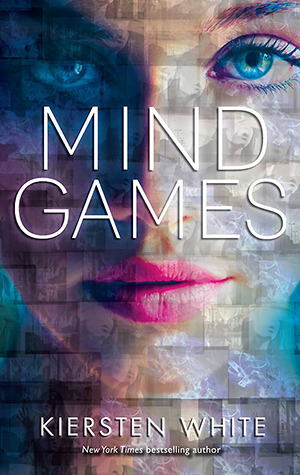
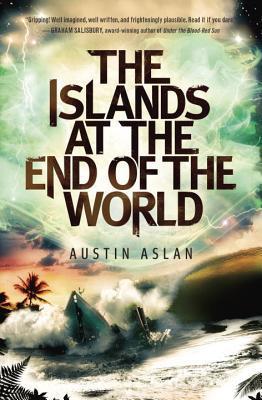
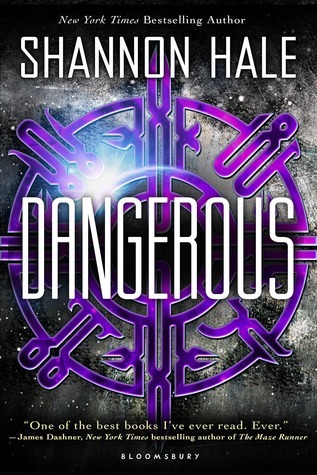

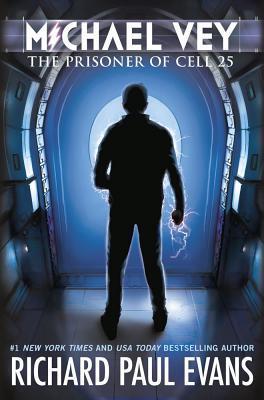

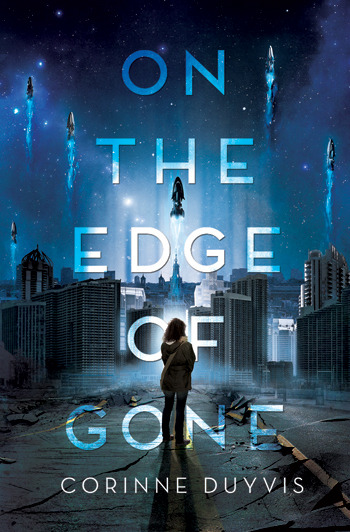


Nine YA science-fiction novels with disabled protagonists
Mind Games by Kiersten White The Islands at the End of the World by Austin Aslan Dangerous by Shannon Hale Viral Nation by Shaunta Grimes The Prisoner of Cell 25 by Richard Paul Evans The Drowned Cities by Paolo Bacigalupi On the Edge of Gone by Corinne Duyvis Stranger by Rachel Manija Brown & Sherwood Smith This Is Not a Test by Courtney Summers At Disability in Kidlit, we’ve so far reviewed The Islands at the End of the World, Dangerous, Stranger, This Is Not a Test, and Viral Nation from a disability perspective; we’re looking forward to reviewing the others as well to find out how well they handle their depictions of disability.
Want more Disability in Kidlit booklists? Want to review one of these titles for us?
732 notes
·
View notes
Text
HOW I DISCOVERED I AM WHITE
By renegademama (Janelle Hanchett)
RENEGADE MOTHERING
When I was 14 or so, I asked my grandmother why we didn’t have a “white club” at school. I don’t recall her response, but I do remember feeling particularly smug and vaguely angry that there was a “Latino” club and a “Chinese” club but not a “white” club.
Oh the unfairness! Oh the disparity! Why do we celebrate their heritage but not ours?
And I didn’t think about race again, at least not much, until I dated an African American man in college and a stranger whispered “nigger lover” in my ear one night as he walked by us in a grocery store. Disgusting.
I figured he was a strange exception of horrible racist creature. He was, after all, approximately 97 years old. (Well, 70, but he appeared 97 to my fresh young eyes.)
And then, a few months later, when my boyfriend’s roommate took me aside and asked why I have to “take a good black man who was in college,” when so many black men were incarcerated. I concluded she was crazy. And mean.
She hurt my feelings. Poor Janelle.
Beyond these few moments, and a couple others, I didn’t really think about race. Well, I thought about how people made arguments “about race” when clearly they were not. I mean why do they make race an issue? It’s obviously not.
Oh yeah, I had America all figured out: If ya work hard, you get ahead. And if you don’t get ahead, it’s because you made bad decisions. And if you get arrested it’s because you’re breaking the law, and people who break the law are more likely to be black. Obviously. That’s why they’re always getting arrested. (How’s that for some cyclic logic?)
I knew this to be true because:
America was awful to black people but that was fixed during the Civil Rights movement;
Therefore, we are all on equal footing now and if you don’t succeed it’s because you aren’t trying.
I learned it in school. It was fact. School teaches the truth.
And then, graduate school, and Professor Lee.
Oh, shit.
“Not all white people are white supremacists, but all white people benefit from white supremacy.”
WHAT THE WHAT?
She made us repeat it like a mantra. At least 3 times. I read Tim Wise’s White Like Me (I have mixed feelings about him now, but I digress) and bell hooks and David Roediger’s Wages of Whiteness and learned how our economic systems benefit from racism and we read about thehistory of American immigration laws (have you ever read them?) and colonialism in the Philippines and elsewhere (yes, America has colonies but we call them “territories”), and we read about redlining and white flight (ever wonder how black people ended up in urban centers?), and we read some DuBois and Omi & Winant and literature by people of color and all of the sudden I realized I had been fucking lied to.
I understood America through white eyes. I understood the world through the mainstream, polished glasses of a nice clean history of “we used to be bad now we’re not the end.”
Go team.
I discovered I was white.
“Not all white people are white supremacists, but all white people benefit from white supremacy.”
She wanted us to see that as individuals, not all white people are bigoted. But she also wanted us to see that every white person – whether they are bigoted or not – benefits from the racially structured hierarchies in America. They benefit from racism.
Yes. Even me. Even though I am not “racist.”
How? And she explained whiteness. She explained that “white” is the standard. White is the background against which difference is measured.
In other words, it’s “white” until further notice. It’s “white” until proven otherwise. It’s “white” or it’s the “other,” and it has nothing to do with actual numbers, percentages of “minority” population. It has to do with power. It has to do with the culture of power. What do I mean? If a comedy film features a white family, it’s a comedy. If it features a black family, it’s a blackcomedy.
Think about it.
White is the standard. And I’m white. Therefore, I am standard, and that benefits me.
When I walk into a room, I don’t fear that I’m representing my whole race. I have never acted badly then thought to myself “Oh shit, I sure hope they don’t hate all white people now.”
Or, in other words, even though pretty much every Columbine-type-school-kid-murderer is white, I’ve never developed a distrust for white, socially awkward high school kids.
A few do not represent the whole.
“Privilege is passed on through history.”
Whatever. I grew up POOR!
But then I thought about how, in the late 1940s, my grandmother was the first woman editor of the University of Washington’s newspaper. After she graduated, she and my grandpa bought and ran small newspapers in northern California. The family business they built employed my family members for 40+ years.
In the late 1940s, black people were not allowed to sit in the front of the bus.
How can I deny that my grandparents’ access to education and economic success did not materially affect me in a positive way, directly, through my father? I thought about the loans my parents were able to take with financial backing from my grandparents, and how that benefitted me. My life. My quality of life. The neighborhoods we lived in. The schools we attended. My cultural knowledge.
“Why don’t we have ‘White History Month?’”
Because White History Month is every month other than February, asshole.
Oh, shit indeed.
“The culture of power determines which version of history is told and retold.”
Prior to the Women’s Rights Movement, women were stuck in the home while men went to work and supported them. But then women were liberated and able to get jobs working outside the home.
Right?
WRONG. White, middle to upper class women were “stuck in the home.” Women of color have ALWAYS “worked out of the home.” In fact, the women of color were probably working in the homes of the white women about which our history is written.
So one of the most oft-repeated, trusted narratives about American history erases the history of women of color. It is dead fucking wrong. It isn’t even kind of right. They are erased. Non-existent. Unseen.
They are Chapter 10. They are a chapter that ends with “but then Martin Luther King, Jr., and all is well.”
They are Chapter 10. I am chapters 1 through forever, and every day I cash in on that fact, whether or not I support the systems making that happen for me.
I realized the reason I had never thought about race was because I was of the privileged one, because I didn’t have to, NOT BECAUSE RACIAL DISPARITY DIDN’T EXIST. I didn’t have to think about race because I was having a fundamentally different life experience than people of color. But I could ignore them, because of my privilege.
I was able to hang out in meltin-pot, “post-racial” land was because the structures of that society allowed (and encouraged) me to “not see race” while continually feeding me narratives about “equality,” “multiculturalism,” “color-blindness” and “ghetto urban lifestyles.”
I spent a lot of time in graduate school in the library, writing at a computer. Like, hours. Whole days. When I had to pee, I would ask the person sitting next to me to watch my stuff so I didn’t have to pack it all up and carry it down the hall to the bathroom. I did it a 100 times.
Once I looked over at the person next to me and my first thought was “Oh you can’t ask him. He’ll steal your stuff.
He was a young black man wearing a gray hooded sweatshirt.
I was sickened at myself. I was horrified at my response. There was absolutely nothing different about him than the 100 other people I didn’t hesitate to ask, except he was black.
I realized that not only do I benefit historically and presently, every day, from the color of skin, I have also internalized cultural narratives regarding blacks and whites that manifest whether or not I support them.
“Hey, would you mind watching my stuff for a minute?”
But what now?
Does it mean my grandmother’s accomplishments are less badass? Nope. Does it mean I do not “deserve” success? Nope. Does it mean that I am a bad person? Nope.
It means that we live in a highly racialized society rooted in a history of discrimination and that we have a long way to go. It means that I have had an advantage over people of color. Yes, always. Yes, no matter what. Because even if you’re poor and white you can join the culture of power by learning the walk and talk. But you can’t change your skin color.
From the day I was first introduced to this “other story,” I couldn’t get enough. Not because I’m some sort of saint or conspiracy theorist, but because I was curious. I was interested out of a sense of shared humanity. And I was fucking angry that I had been swindled. I wanted the truth. Or, I wanted a fuller picture. I wanted more sides.
That, my friends, is pathetic in its privilege.
I learned in graduate school what every person of color knows through life experience. I learned in graduate school that we weren’t “fixed” during the Civil Rights movement.
But when this information was presented to me I felt a sense of relief, because I think deep down I always knew something was terribly wrong, but I couldn’t put my finger on it.
I don’t understand the white rage I keep reading on the internet.
Just another dead thug.
He got what he deserved.
Run over the protestors. They’re making me late for work.
STOP PLAYING THE “RACE CARD.”
I don’t understand it. What’s at stake, people? What’s at stake in accepting that racism exists? Or even entertaining the thought? Are people really so stupid they can’t fathom that other people might be having a different experience than they are? Is it really that hard to comprehend that something can exist EVEN THOUGH YOU DON’T PERSONALLY SEE IT?
(Although you’ll see your privilege if you’re willing to examine your life honestly.)
Why the hell are people so unwilling to listen?
Let’s think about this for a moment. A whole community of people are saying this exists. Data shows racial disparities in economic, education, justice, and healthcare systems. Basically, ALL OVER THE PLACE. Unarmed black boys and men are killed without recourse. Repeatedly. The comment sections of these crimes are riddled with assholes shouting “Good. One less loser.”
But people still claim “Racism doesn’t exist.” But here’s the thing: The only way you can discount the words, lives, efforts and voices of hundreds of thousands of people is THROUGH THE RACISM YOU CLAIM DOESN’T EXIST.
You can only ignore them if they’re aren’t worth hearing.
You can only ignore them if they’re liars. If they’re just looking for a handout.
If they’re not human like you.
You can only ignore them by using the very narratives you claim aren’t happening.
And let’s be honest, we can only ignore them because it’s easy, because we’ll never have to walk a day in their shoes, and it’s just so much more pleasant to turn away, look away, focus back on our lives.
But the sand is getting skimpy and our heads are showing. At this point, if we’re not part of the solution we’re part of the problem.
I’m using my voice to talk to you. I’m using my voice to talk to my kids. But it isn’t enough. We’re looking for places to volunteer. I’m looking for actions I can take.
We’re at a crossroads. This cannot go on. We’re crushed under the weight of hatred, history, silence, violence, bullshit media and the insidious defense of systematic unequal distribution of resources, and at some point, none of us will be able to breathe.
It feels small and pathetic to be one person in this mess. I feel stupid and vulnerable and slightly insane to be writing this here, now. But fuck my feelings. Fuck feeling uncomfortable. Fuck the nonsense that keeps us quiet and content and cozy in our little post-racial dreamland.
They can’t breathe, and I’m breathing just fine.
And that is precisely the problem.
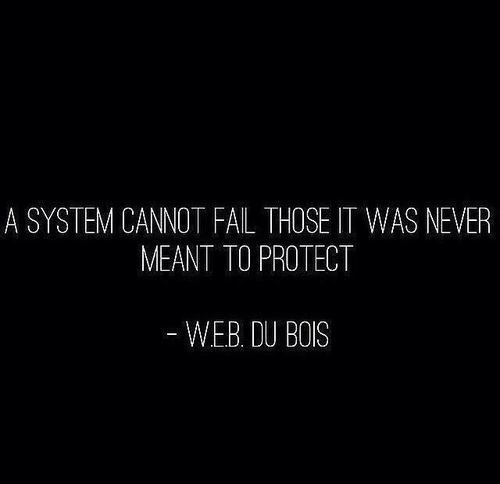
112K notes
·
View notes
Video
youtube
Here’s the MTV Decoded video with chescaleigh and lacigreen I was mentioned in (along with some of my favorite WoC like katblaque theekatsmeoww and smoothiefreak!)
515 notes
·
View notes
Text
The future of social media
We’re always excited about the new and coolest thing in technoloy and on social media. However, this article on the Internet of Things mentions the one thing that librarians should always be wary of: secutiry and privacy. It’s great to be able to offer our customers ways to interact with the library collections, databases, and librarians outside of the library building itself. However, librarians also have an obligation to protect or, at the very least, warn our customers of the potential security and privacy risks.
Think about it. Facebook is constantly changing the privacy statement and terms of use. LinkedIn has done so in the past three years as well. The amount of information that we, as users, provide to social media sites through our registration, agreement to those statements, and continued use of the tools and apps is staggering. As librarians, it’s our job to think about these things, especially when we choose to engage with our customers on the internet. That doesn’t mean that we hop onboard whenever a new social media tool or app pops up and displays lasting power. It means that we have to be discerning when deciding which tools we’re going to engage with. It means that we have to be able to answer questions about our use of the tool and what steps we take to ensure customer privacy and security. Social media is a two-way, digital conversation, but, like any polite conversation, we shouldn’t be prying into our partner’s private life without permission.
3 notes
·
View notes
Text
The best and worst
Some of the best users of social media, and I’m thinking of Twitter and Tumblr specifically because I use them frequently, are responsive. They post content that people feel connected to, and they respond to those who feel compelled to reach out to them. Strangers waiting up and down the boulevard! Please excuse the Journey moment, but that’s what t feels like. When social media users are honest and earnest, it comes through in their posts, and people feel as though they know that person.
On the flip side, though, is oversharing. Oversharing is the worst. You want to have some things that are never discussed on social media, because the internet is forever. People will never forget what you said on social media, because screenshots are exhibits a-z. So, always be careful. Perfect example: I had a conversation with friends the other day about photos we posted to Facebook during undergrad. Let’s just say they weren’t the best photos, and though they’ve been removed in the intervening years, we still remember them and they comments they received. Lesson learned.
Another thing I’ve noticed the best social media users are good at is hashtags. Hashtags are tricky. Too may hashtags or trying to hashtag everything is tacky. Hashtags are conversation enhancers and conversation trackers. It’s easy to join in or follow a conversation using the hashtage. We use them all the time for class. But, there are times when hashtags just won’t fit or are inappropriate, and trying to force them can show inexperience.
The best social media users also use photos to enhance their posts. Text posts are great, but posts with images are more likely to be seen and get responses. See #29 on this list from Search Engine Journal. In fact, read the entire article. Some of the items are easy to avoid, and others take practice and fine tuning. The goal, though, should be a successful, sustainable social media presence.
0 notes
Text
Unplanned Hiatus
Hello again! First, apologies for the unplanned July hiatus. I didn’t realize that my schedule would be quite so hectic this month. The hiatus will continue though, until the end of summer classes. I’m so close to the finish line for my MLIS. I’ve already registered for fall classes and submitted my official candidacy form. Next step: apply for graduation! I’ll be back to tell you all about my…
View On WordPress
0 notes
Text
You're social media skills are not measuring up
But what does that mean, exactly? What are we measuring when we go to those analytics or Insight pages? Do we care how many people like or follow us? Or are we more interested in how many people we've interacted with?
Social media monitoring doesn't happen willy-nilly. Libraries cannot jump into a social media tool without a goal in mind. This goal is key to determining what constitutes success on a given platform. This week's question asks for a concrete answer, though, not an 'it depends on the goal'.
Throughout the semester, I've really latched onto the 'social media is a two-way communication flow' theme. It has informed the way I structure my personal and professional interactions on Twitter. Admittedly, it is a work in progress, but I'm trying. That said, the goal for my social media is engagement, that is conversations had about or with me (the library). Are people connecting with library? Starting or participating in conversations/chats? On Twitter, that means looking specifically at the stats for mentions and replies, and analyzing those tweets to determine what about them drew people in. Once the communications line are established, then I can start looking at link clicks and profile views and reasonably begin expecting "twitter" to be used as a referral to a program. None of that matters, if the library isn't actively engaged in conversations with its' customers. There may be the odd reply, mention, or link click for tweets that are posted at prime times or have an interesting hashtag, but that is to be expected. It is purely coincidental. True engagement, it seems, comes from targeted communication building efforts.
0 notes
Text
Library Marketing & Social Media
Social Media. All the essays, gurus, and executives say that social media is a conversation. But marketing, what I know of it (most of which I learned from Mad Men), is more one way, rather than two-way. Maybe that’s just advertising, but aren’t advertising and marketing two sides of the same coin?
Over on the SJSU246 Pinterest board for this week, there is a pin from Valerie about optimum times to post. Why, though, do we target the 1p-4p range for Facebook and Twitter? Do we only want people to see our posts during their lunch breaks? This is an interesting thought, because, if I, as myself, were to post on Facebook between 1p-4p, I can expect almost no one to see it. Why? Because people are at work. They have daytime lives. Is the library only a part of the daytime life of our patron? Am I getting too philosophical with this? I have the same question for Twitter. I would think that Twitter’s optimum posting times would be in line with Tumblr, 7p-10p, to go with TV shows, live tweeting, live blogging, leisure time. Mind blown.
But on to the question for this week: How should libraries market the social media tools their using?
Be fun. Be relevant. Be engaging.
Study the social media greats of the demographic you’re going after, and emulate them. If you want Millenials, study the things they like. Watch Youtube channels. Do the research, then engage. One thing to remember: Social media marketing is not just being online all the time. The physical entity of the library, including collections and programming, has to match the online presence being projected (King, 2015).
This module, this entire class, has left me with a lot to think about regarding both mine and my library’s social media campaign. On the personal side, I don’t use it as a conversation. On the professional side, we’re a bit all over the place, and while I understand that different platforms have best practices, we could stand to be more cohesive.
King, D. L. (2015). What to do from start to finish. In Managing Your Library’s Social Media Channels (pp. 33-35). Chicago, Ill: ALA TechSource.
#sjsu24611tomarket#libr246#sjsu#social media marketing#librarian in training#this may be my most disjointed post#but this topic is not my forte#i'm trying to understand#and I must work through the confusion
6 notes
·
View notes
Text
Big data & libraries
This week we're looking at big data, privacy, and what both mean to libraries and librarians in this social media optimized, highly technological world in which we live. The question asks whether libraries should collect, store, and utilize big data in service to our communities. I have mixed feelings about this.
Jennifer Helfrich (2015) defines big data as "data sets that are extremely large and complex," kinda obvious there. However, she goes on to explain, albeit implicitly through her examples, that this data includes personally identifiable information, such as name, email address, phone number, and geo-location, as well as photos, emails, and social media posts (Helfrich, 2015). That's a lot of information to collect about a single person. We, as consumers, tend not to think about the applications we use as collecting all of this information from us and using it or selling it or whatever. Every time we hit "agree" or "accept" to the Terms and Conditions and Privacy Policy without actually reading it, we're consenting to an entity using our information for their own purposes. Often these conditions and policies are so vaguely worded that even if we were to read them, we wouldn't truly understand what they were saying anyway (Scherker, 2014).
It's different for libraries, though. And if it isn't, then it should be. We, as librarians, have been told time and again that we adhere to the American Library Association's Code of Ethics. This means that we have a responsibility to protect the privacy and personal information of our users, as well as the library institutions commitment to intellectual freedom and fair representation. How can we do either of those things if we are collecting, storing, and using customer information? Is that not the complete opposite? We want our users to trust us not to do such things. We are the library, a community center, not a faceless corporation.
On the flipside, I can see where collection of some user data could be useful. I don't mean all that which is traditionally defined or thought of us big data, and indeed, it still feels as though it would go against the very nature of the library. But. Libraries already track circulation statistics for materials. Items go out, they come back, they have circulated. They have been used. Normally, we have no idea what the item was, who checked it out, if they liked it, none of that. Some ILS' have a "reading history" feature where users can opt-in and keep track of everything they've checked out. What is interesting to me, and makes me think that this could be a good thing, is that users think we do this automatically. Some are confused and downright disappointed that we don't keep track of what they checked out after they've returned the item.
I propose that we do automatically track user check outs. It doesn't have to be the title. It could be just the author's name or the genre. This way, when the user comes looking for a readers' advisory, but can't remember the last book they read, we can look at it, and continue the interaction. Such data collection could also lead to a collection that better reflects the service community. Of course, we can't leave the entire collection up to user whims and publishing trends, but the usage statistics of a collection based heavily on concrete user wants would be a strong indicator of value added to the community. There would be challenges, to be sure. One major objection I can see already: How do we ensure that users personally identifiable information is protected while simultaneously tracking their reading habits? I don't know yet. Another issue that would need to be addressed: The creation of a policy/procedure/guideline and related press release for the collection and use of this data, as well as something that states explicitly that the library will never sell, rent, share, or otherwise utilize the personally identifiable information of users beyond the bounds of current usage. Tis a very fine line to navigate.
What I worry about, though, in tracking reading habits is that people will feel less free and able to read what they want. They may feel as though we are watching them and will only pick socially acceptable books like Hamlet, rather than what they want to read, which may be Fifty Shades of Grey. I would hate for that to happen.
Helfrich, J. (2015). Plugged in or tuned out?: What do our students know about big data? Knowledge Quest, 43(4), 76-77.
Scherker, A. (2014). Didn't read Facebook's fine print?: Here's exactly what is says. Retrieved from http://www.huffingtonpost.com/2014/07/21/facebook-terms-condition_n_5551965.html
#sjsu24611bigdata#libr246#big data#library school#librarian in training#reading habits#tracking statistics#ALA Code of Ethics#ALA
0 notes
Photo
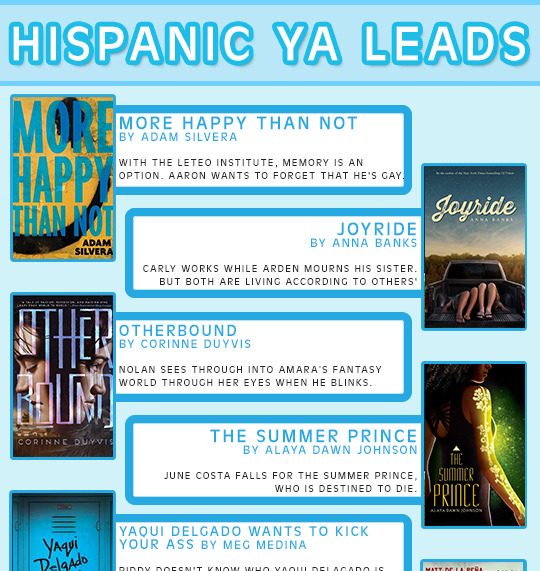
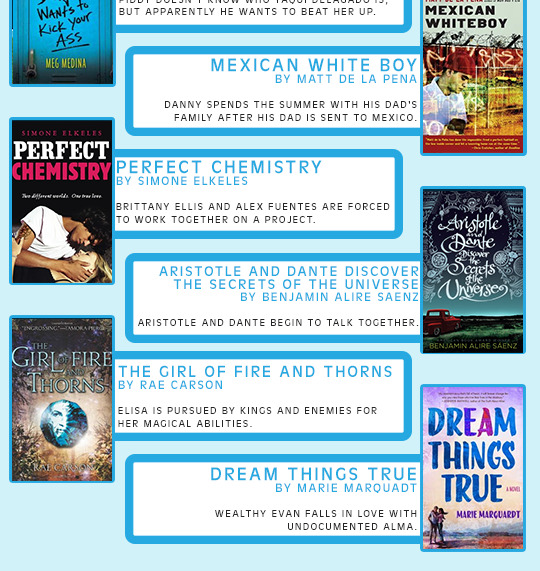
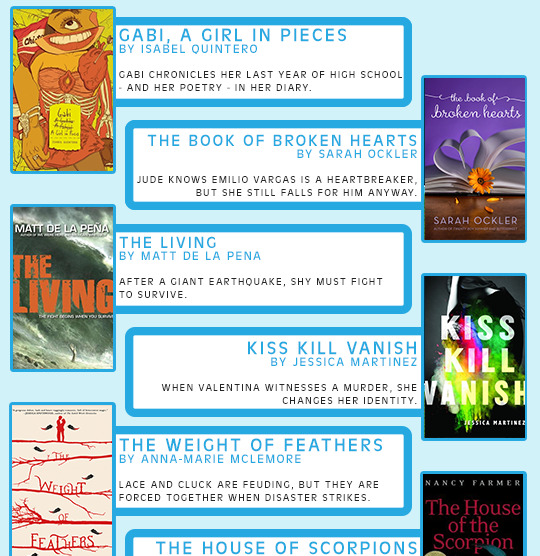
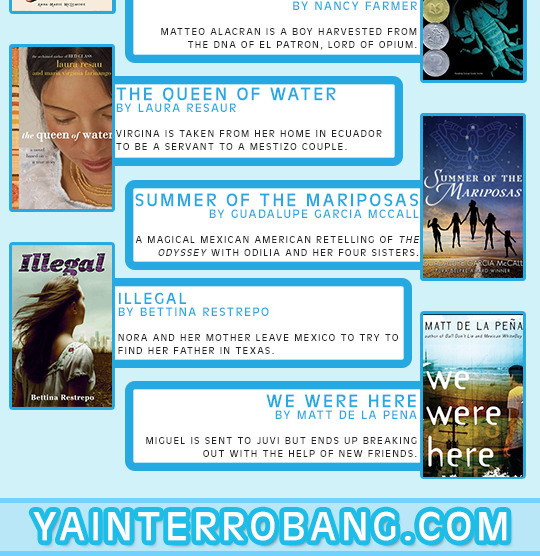
LIST OF THE WEEK: HISPANIC YA LEADS
So many of you asked that we spent all of Monday working on this - a list of Hispanic / Latino / Latina leads. (Which we would have included in the title, but it wouldn’t fit in the graphic space!) Check out these twenty Hispanic YA leads and share your favorites when reblogging! For more fun lists and all things YA lit, visit our website, follow us here and on Twitter, and subscribe to our weekly newsletter! More YA books with Latino / Latina leads can be found at Latinos in Kidlit, an amazing resource dedicated to reviewing and collecting YA books with Latino / Latina leads. For more on each book, or if you need a text-version / captioned version, visit the list on our main site.
7K notes
·
View notes
Text
Information Evaluation Rises Thanks to Social Media & Web 2.0
This week’s question asks us to think about how education has changed, as well as some of the advantages and challenges of learning in a social media/web 2.0 world. What's the most obvious change? Wikipedia and Google Scholar.
Wikipedia taught us that all information is not created equal. Maehre (2014) argues that Wikipedia is not only a good thing, but can be useful in teaching information evaluation. We can all agree that there are great Wikipedia articles and there are trash Wikipedia articles. The great ones have references that are almost as long as the article, hyperlinks that aren't broken, headings and subheadings to get lost in. The trash ones are plagued with this:
A great Wikipedia article lights a spark, makes you want to read more, makes you feel as though you've learned something. A trash Wikipedia article will make you question your educational choices. Maehre (2014) sees this as good. For him, learning is a process, a journey, with no particular end in sight. You should always be engaged in thinking critically about the information that you come into contact with, and using Wikipedia, in conjunction with other educational techniques, can teach you how to do that (Maehre, 2014). The background or authority of the author takes a backseat to the quality of information presented.
Google Scholar is something that I've only just discovered in graduate school. Google is fast becoming a one-stop shop. It's a verb, for Pete's sake! Access to scholarly articles without having to be connected to an academic institution. Who would have thought that was possible 15 years ago? It is here that a student may come when searching for that magical combination of keywords and phrases combination that will net us a good 5 or so pages of results that we can sift through. We do this, because we want general information.
It has always been my understanding that a good research project moves from the general to the specific. Starting with internet searches, whether through Google or Wikipedia, is a tried and true technique of graduate students, indeed of undergrad students as well (Liyana & Noorhidawati, 2014). From the internet search for general information, we begin to form our thesis; we begin to frame our research. Then we move on to library research, online or physical.
The advent of web 2.0 and social media, I think, has forced us to become more discriminating in information sources. We know, now, that we can't trust everything someone tells us and/or that we read on the internet. We know, now, that some news outlets report without gathering all of the facts in an attempt to be first. Ever heard the phrase, "It's not true until it's on the BBC"? From all accounts, the BBC doesn't worry about being first. They worry about being right. I could be wrong here, but that's my impression. Web 2.0 has brought the hows of information evaluation to the forefront of the conversation. Rather than saying "don't use bad sources" or "beware of biased authors", web 2.0 and social media has made it possible to gain multiple perspectives, so that we may determine what a bad source is, what it is about the information that makes it unsuitable.
Liyana, S. & Noorhidawata, A. (2014). How graduate students seek for information: Convenience or guaranteed result. Malaysian Journal of Librar & Information Science, 19(2), 1-15.
Maehre, J. (2014). What it means to ban Wikipedia: An exploration of the pedagogical principles at stake. College Teaching, 57(4), 229-236.
#sjsu24611learning#sjsu24611learning2.0#libr246#education#Google Scholar#Wikipedia#web 2.0#social media#library school#librarian in training#information evaluation
0 notes



